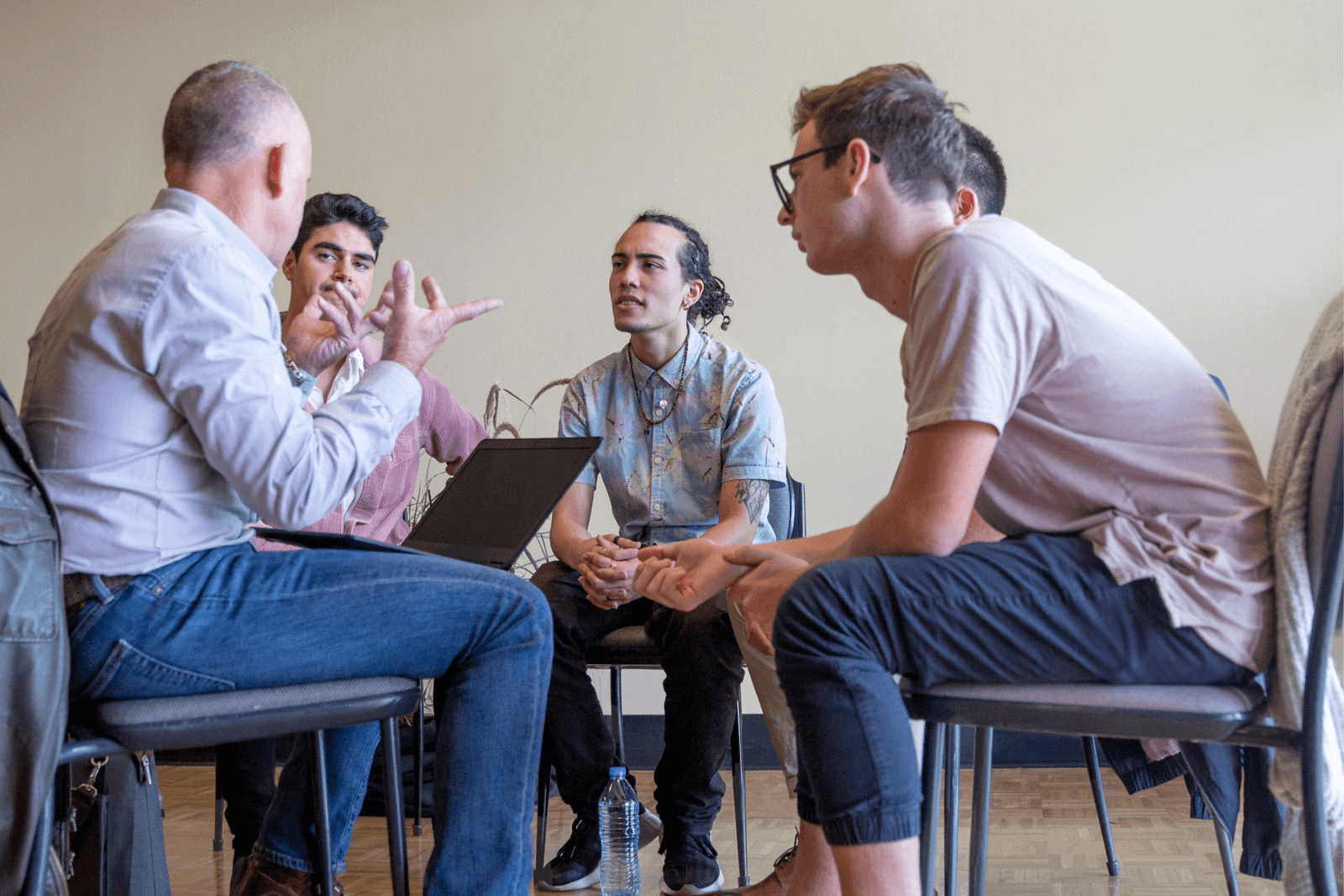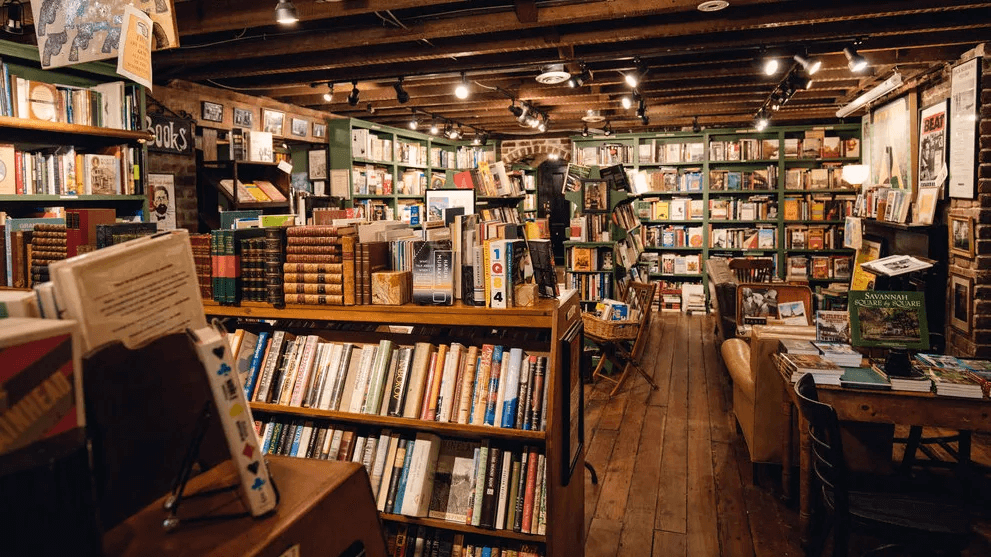According to the National Institute on Drug Abuse (NIDA), “Like treatment for other chronic diseases such as heart disease or asthma, addiction treatment is not a cure, but a way of managing the condition. Treatment enables people to counteract addiction’s disruptive effects on their brain and behavior and regain control of their lives.”
As you may know all too well, treatment for any chronic disease like diabetes involves more than simply ceasing the substances or habits that led to the condition. You also have to change the behaviors that led to the chronic state, and that goes well beyond the detox period. Here is where peer support in the form of recovery meetings or sober meetings becomes invaluable. They can minimize the urge to use and increase your support system.
If you reside in Orange County and are seeking support, there are dozens of substance abuse and mental health organizations available that can connect you to local support groups and sober meetings. Read on to learn more about the importance of these sober meetings in Orange County. This article also contains information about specific sober meetings throughout the county.
What Are Sober Meetings?
Sober meetings, also known as recovery meetings or support group meetings, are peer support groups that meet regularly. The members help one another stay clean and sober. Most recovery organizations use the same meeting format, and the most widely known utilize the familiar 12 Steps; they are Alcoholics Anonymous (AA) and Narcotics Anonymous (NA).
Meeting styles often vary across geographic locations, adapting to the culture and style of the people. However, sober meetings in Orange County or elsewhere can be keys to addiction recovery. Sober meetings mean peer support, allowing members to share their knowledge and experience with one another. Further, peer support is ongoing, constant, and accessible as people balance their sobriety with the demands of daily life. This way, it complements any other therapies or healthcare services members may receive to support their recovery.
Sober meetings also cast a safety net out to those transitioning from a rehabilitation facility or outpatient treatment program. According to the Substance Abuse and Rehabilitation journal, “Peer support groups included in addiction treatment show much promise in potentially reducing substance use, improving engagement, . . . and improving substance-related outcomes.”
Positive Effects of Support Group Meetings
Addiction is a chronic, progressive disease that can be treated but not cured medically. However, people who seek treatment and follow-on support have a significantly reduced rate of relapse. While there are no medical studies that measure the effectiveness of sober meetings or 12-step programs, they are part of ongoing support therapy. Most 12-step programs rely on anonymity, which means that few individuals wish to participate in studies or discuss their recovery outside of the support group environment. Of course, there is much anecdotal evidence from people who maintain their sobriety with the support of their peers.
An international group called Peers for Progress has gathered information from studies and other anecdotal reports that peer support groups are an effective strategy that supports ongoing sobriety for individuals struggling with addiction. Some of the positive benefits of sober meetings include the following:
- Decreased mortality rates
- Increased life expectancy
- Increased knowledge of the disease
- Improved self-efficacy
- Improved self-reported health status and self-care skills
- Improved quality of life
- Reduced use of emergency services
- Fewer instances of depression
- Heightened self-esteem
Twelve Steps: Not Just for AA
The 12 Steps or 12 Traditions provide the framework or path for members to walk as they begin recovery and strive to maintain sobriety. The 12 Steps help individuals navigate the challenging road to recovery. The steps are based on the moral and spiritual decisions a person must make to remain sober. They also outline how leaders facilitate meetings and support participants.
The first established peer support program was Alcoholics Anonymous, which was established in 1935. Over time, the organization and its 12-step program gained notoriety due to its success. In 1953, Narcotics Anonymous adopted the 12-step program and also became a successful organization. Since then, other organizations have followed suit, offering support to those living with gambling addiction, eating disorders, etc.
What to Expect During a Recovery/Sober Meeting
While meeting agendas differ across organizations and geographical regions, there are some basic activities you can expect to see when attending a sober meeting, particularly ones that promote the 12-step recovery process.
Foremost, attendance is strictly voluntary. Even when an individual may be court-ordered to attend, the arrangement is never discussed with the recovery group, nor does the group report any information to the court system.
Meetings are often run by a leader or chairperson, whose responsibilities include taking attendance, distributing literature, making coffee, and unlocking the doors. Most 12-step organizations treat everyone as equals, so the chairperson runs the meeting but is not the group leader.
Most meetings typically run for 60-90 minutes, open with the well-known Serenity Prayer, and some close with it. Other activities may include some or all of the following:
- Readings from the organization’s literature, including the 12 Steps
- Voluntary donations collection to support the purchase of literature, buy supplies like coffee, pay rent for the meeting space, etc.
- Distribution of coins or chips to commemorate varying periods of sobriety and clean time
- General announcements
The majority of the meeting is open to discussion time, where participants share their successes and struggles, discuss problems and the tools to overcome them, or how their lives have changed since the recovery process began.
There are different styles of AA meetings, and you can choose which style(s) are best for you. The meeting types are broken into the following categories:
- Open Meeting: Anyone who is interested may attend open meetings. Often, family and friends of those in recovery attend. They listen and observe as members share their experiences.
- Closed Meetings: These meetings are reserved for those in recovery only so they can share with peers facing the same issues.
- Speaker Meetings: Members encourage one another to speak about their experiences during these meetups. Sometimes, a guest speaker attends.
- Discussion-Based: These meetings follow the general discussion format, though they may focus on a specific topic.
Support Groups In Orange County
Orange County and the surrounding areas contain dozens of support organizations with local sober meetings to support you on your journey to sobriety. Whether new to the area or needing additional support, you can find meetings that meet your needs and work your schedule. You’ll find a plethora of sober meeting options for anyone dealing with alcohol, narcotics, and other addictions. Here are some resources:
Alcoholics Anonymous (AA)
AA is one of the most recognizable peer-support organizations for addiction. You can access the Los Angeles central office’s online directory to search the over 3,000 Orange County AA Meetings.
Narcotics Anonymous (NA)
NA follows AA’s 12-step model that is dedicated to people with addiction to narcotics. This large organization hosts hundreds of meetings in different regions of California, so you can find the support you need. The NA website has a meeting search tool for Orange County that lists in-person and virtual meetings.
Cocaine Anonymous (CA)
CA is another 12-step fellowship specifically for people struggling with crack or cocaine addiction. CA’s website features a calendar of upcoming virtual and in-person meetings in Orange County and other regions in California.
Crystal Meth Anonymous (CMA)
CMA offers support and fellowship for individuals struggling with meth addiction. They also use AA’s framework and have sober meetings listed on their website, and you can filter your search by location, format, and type.
Marijuana Anonymous (MA)
Like the others, MA’s program follows the AA outline, providing members with a safe place for support and guidance. MA offers a similar, filterable search tool for upcoming meetings in Los Angeles and the surrounding area.
National Alliance on Mental Illness (NAMI) Orange County
NAMI is a large mental health organization with affiliates in several states, including California. NAMI Orange County provides support groups for adults suffering from a mental health condition or for their family members. Meetings are confidential.
SMART Recovery
SMART recovery is a free resource for supporting people with all types of addiction. They hold meetings guided by trained facilitators all around Orange County. You can search for upcoming meetings in the online database. There’s also a mobile app available.
2-1-1 Orange County
2-1-1 is a free telephone number that connects you to local mental health services, including support groups and crisis interventions. While that includes support groups specific to addiction and mental health, there are support groups for specialized concerns like sexual abuse, codependency, and family issues.
Things to do that Don’t Involve Drinking
Recovery means finding new social outlets to replace the ones that involve drinking or drug use. It almost always means finding new peer groups who can support your recovery. More often than not, old acquaintances who shared your addiction are not interested in your recovery. So, there’s a need to reconnect with supportive peers and make new connections. Also, with sobriety comes the opportunity to try new hobbies, sports, and other experiences that you never could before.
Orange County has plenty of recreational and cultural experiences that can support healthy change. You’ll find everything from outdoor adventures to museums to vintage shopping. We can only include some things here, but the following are lovely things to do in Newport Beach, Orange County, Los Angeles, and nearby areas. You can Google “Things to do in Orange County” or check Facebook events for local happenings.
Beaches
Whether you wish for a relaxing day in the sand or the rush of jet skiing, take advantage of the beautiful Long Beach and Catalina Islands. You can also try snorkeling or swimming with dolphins.
Broad Museum
The Broad Museum is a unique modern art museum with rotating temporary exhibitions totaling over 2,000 works of art from the postwar and contemporary periods. Some of the artists featured are Andy Warhol and Jean-Michel Basquiat. Admission is free, and you can go more than once for a new experience each time.
Disneyland
If your budget allows, tap into your inner child and take a road trip to Anaheim and the Disneyland properties, including Downtown Disney (no ticket required). Don some Mickey Mouse ears and enjoy a day immersed in the world of Disney.
Farmers Market
The Irvine Certified Farmers Market is held each Sunday at Great Park. Explore the market and try locally grown fruits and vegetables. You can also visit the Farm + Food Lab for free home garden tips from the Division of Agriculture and Natural Resources at the University of California.
Flea Markets
LA’s infamous flea markets are filled with vintage clothes and other treasures. Even if you’re just going to look, you can spend the day at the Melrose Trading Post or Silverlake Flea Market. If you’re feeling ambitious, you can make a day of it and ride over to the Rose Bowl Flea Market in Pasadena.
Two-Bit Circus
The tech-infused Two-Bit Circus is an oddity to behold. Along with the tech-themed circus act, there is an arcade, immersive virtual reality “experience rooms,” charming robots, and other events.
The Last Bookstore
The Last Bookstore is the largest bookstore in California, selling new and used books. The bookstore’s building also houses art studios, an infamous book tunnel, a mammoth head, a yarn shop, and other oddball entities.
Venice Canals
Orange County’s Venice canals are a must-see inspired by Venice, Italy. You can explore pedestrian bridges, footpaths, and hiking trails. Nearby are local shops and restaurants for an added treat.
Taking Your First Steps and Beyond
Navigating the path to sobriety takes determination and a lot of courage. You must keep your goals in focus and always seek support to keep you on your path. Recovery is not a solo endeavor, which is the foundation of 12-step fellowships. Seeking support and supporting others helps keep you accountable and successful. You become an essential part of a more extensive network of individuals supporting one another. Mutual success drives the program as well as strengthens individual recovery.
This article presented the benefits of support groups and sober meetings in the Orange County area. The resources presented here ensure that you always have a means for finding a meeting that fits your needs, schedule, and lifestyle. We even included a short list of ideas for finding new, healthy activities and making social connections. Orange County offers some of the country’s most beautiful natural and cultural resources. With your newfound sobriety and goals for healthy living, you can check some of those out with fresh eyes.



